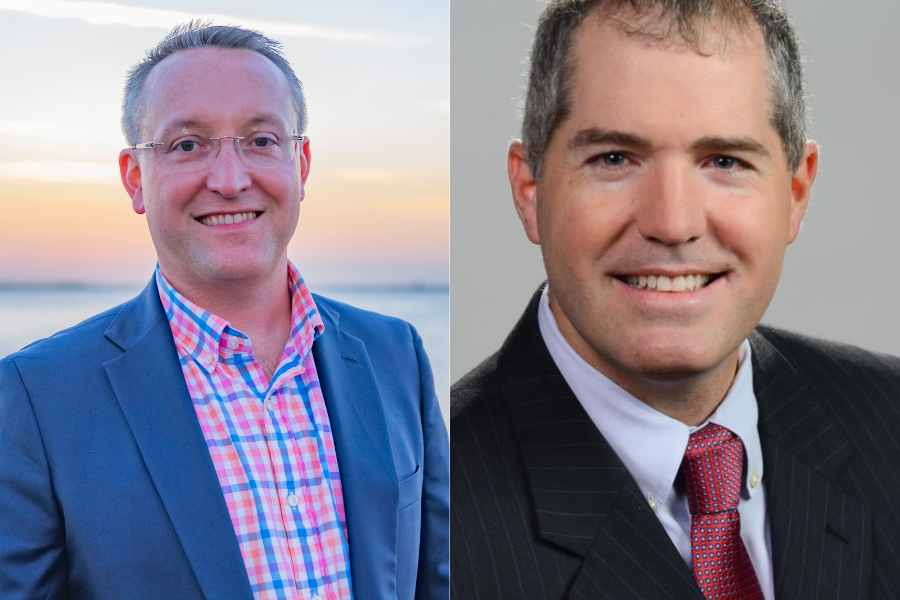The little-known alternative to multiple employer plans gaining popularity with advisory firms
Some advisory firms are using 81-100 trusts as a way to deliver scalable fiduciary investment services to the small 401(k) market.
Multiple employer plans have become a hot topic in retirement-plan circles of late.
MEPs allow small employers to pool their buying power and achieve the lower costs otherwise reserved for larger-plan counterparts. Some eye them as a way to promote increased retirement-plan adoption by employers, and recent potential for legislative easing of MEP rules have promoted increased visibility.
But there’s another mechanism, with which retirement plan advisers may not be familiar, that largely accomplishes the same goals: an 81-100 group trust.
The trust is a commingled pool of employer-sponsored retirement plans that, similar to MEPs, offers a common investment lineup to the participating employers.
One large advisory firm, Bukaty Companies Financial Services, which oversees $9 billion in defined contribution assets, partnered with record keeper Empower Retirement to create an 81-100 trust last year, aimed mainly at small plans with less than $3 million in assets.
To date, there are 39 plans in the trust, called FreedomTrust, which has $49 million in assets. Bukaty is aiming to have 50 plans and $60 million in assets by year-end, said Vincent Morris, the firm’s president.
Bukaty offers it both to advisers affiliated with the firm and non-affiliated advisers.
These trusts allow advisers to provide their investment fiduciary expertise to several small plans in a more scalable way, said Robert Barnett, head of sales for Wilmington Trust Co.’s institutional retirement services group.
“It’s a cost-efficient way for the better adviser shops to service down market and provide 3(38) services with a fund lineup,” Mr. Barnett said. A 3(38) manager is a type of fiduciary providing discretionary investment management services.
Bukaty, via its registered investment adviser, Resources Investment Advisors Inc., serves as a 3(38) fiduciary for the common lineup for plans in the trust. The all-in plan cost, including record keeping, investments and fiduciary services, is 0.72%, Mr. Morris said.
By comparison, a 401(k) plan with between $1 million and $10 million in assets has an average asset-weighted cost of 1.14%, according to a joint study conducted by the Investment Company Institute and BrightScope Inc.
“Because we leverage scale from a lot of smaller plans aggregated together, it helps reduce cost to the individual employers for offering a plan,” Mr. Morris said. “And since everything related to the investments of the plan is done for the plan sponsor, it helps to solve some of the complexity issues with offering a plan.”
Other advisory shops such as Captrust, which oversees just shy of $200 billion in DC-plan assets, also serve as investment fiduciaries to 81-100 trusts.
Some observers such as Mr. Barnett believe such strategies will only become more popular, especially if the Labor Department’s fiduciary rule leads the small market to be underserved by advisory firms.
Rich Rausser, senior vice president of Pentegra Retirement Services, said 81-100 trusts are “very, very similar” to a kind of multiple employer plan known as an open MEP.
Any small employer could theoretically join an open MEP, but individual employers must conduct potentially burdensome administrative tasks, such as file Form 5500s, conduct plan audits and obtain an ERISA bond. Closed MEPs are less of an administrative hassle, because there’s a single Form 5500, audit and ERISA bond for employers, but employers must share a common nexus to participate (chapters of a nonprofit organization, for example).
Because the 81-100 is essentially a trust of trusts, each plan maintains its own trust, plan document, and files its own Form 5500. And it’s theoretically available to many different employers.
It may also prove beneficial to an open MEP for a few reasons, one of which is avoidance of the one-bad-apple rule to which MEPs are currently beholden, said Scott Matheson, defined contribution practice leader at Captrust.
Under that rule, mistakes from one employer such as not making timely contributions to the plan could theoretically disqualify the entire MEP.
Legislation that passed the Senate Finance Committee last year would have eased MEP rules to make them more attractive for small employers to join, and easier for third parties such as advisory firms and record keepers to offer. Similar legislation is pending in the current congressional session.
Learn more about reprints and licensing for this article.








